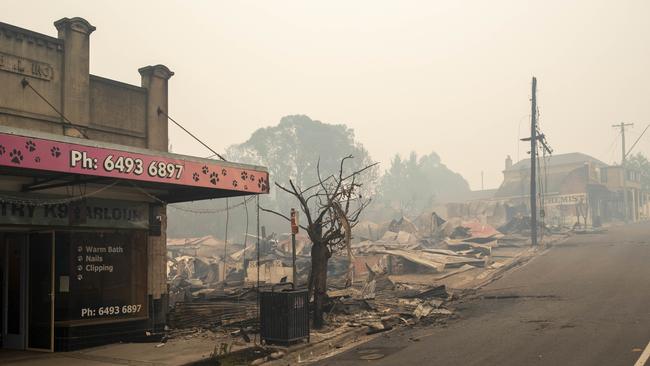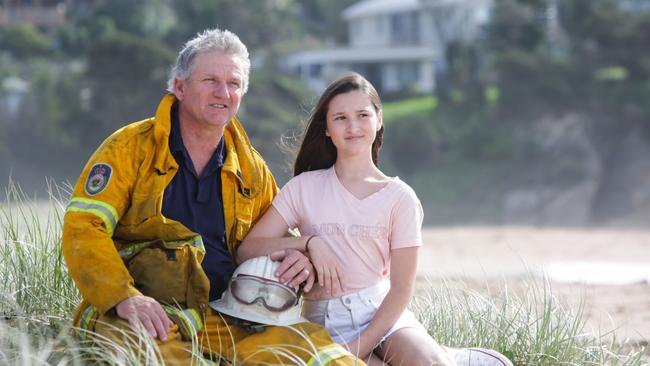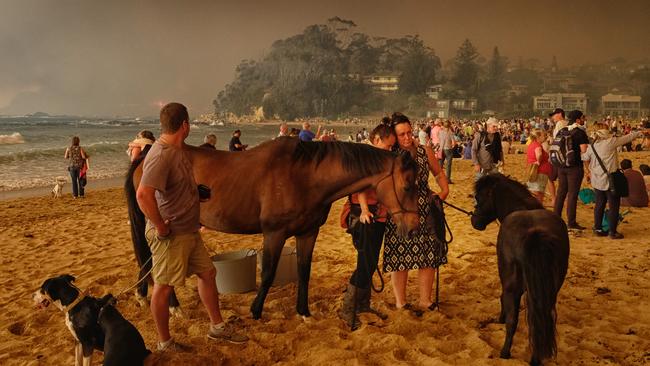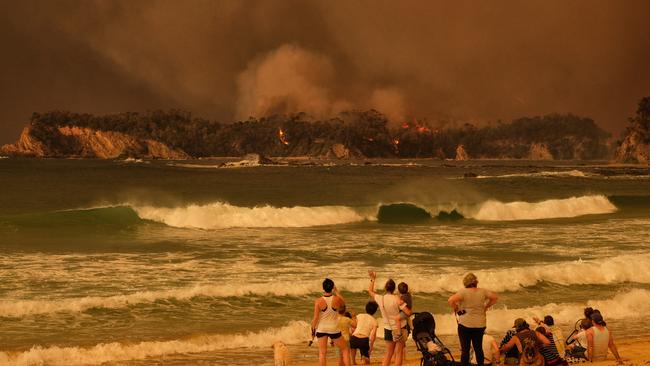Red Cross delivers $201m in donations to bushfire survivors
The Australian Red Cross has handed out almost all of the vast fortune donated by generous Aussies during the Black Summer bushfires almost a year after firestorms swept the nation.
NSW
Don't miss out on the headlines from NSW. Followed categories will be added to My News.
The Australian Red Cross has handed out almost all of the vast fortune donated by generous Aussies during the Black Summer bushfires almost a year after firestorms swept the nation.
But the rebuild is far from over as many who survived the flames face “never ending problems” — unable to rebuild their lives and homes after the pandemic derailed the recovery.
The charity has dispersed $201 million of the $240m collected this time last year, figures released on Wednesday reveal.
The latest round of grants, totalling $17.5m, hit the bank accounts of almost 1900 bushfire survivors just last week, the Red Cross said in a statement.
The charity said more than 1700 people had come to them for aid for the first time after June — six months after the worst of the firestorms had passed.

“The scale of this disaster meant that some survivors weren’t ready to apply until now,” Director Noel Clement said.
“This week we are pleased to offer those in financial hardship up to $10,000 in additional support grants, as many are still coping with the magnitude of their losses.”
Of the remaining $39m there is $24m quarantined for the final wave of grants and “unmet needs” which will likely be allocated early next year.
The final $15m is reserved for the “ongoing community recovery”, the Red Cross says.
The charity came under criticism early in the year after it was revealed huge swathes of the donations were to be distributed over three years.
The charity has long insisted the rebuilding of bushfire affected communities required long term and considered investment over years.
Millions have since flowed to 5808 survivors at crucial times allowing them to pay the bills in a turbulent year.
A former Red Cross executive, speaking on condition of anonymity said he’d been frustrated by delays getting the money out.
He wants the last of the millions donated by Australians to be deployed as quickly as possible.
RECOVERY WILL TAKE ‘YEARS AND YEARS’
Residents of the NSW South Coast fear the pandemic has pushed them to the backburner for government and out of the public eye.
“To be honest it feels like nothing’s changed in 12 months and we aren’t getting any traction,” RFS volunteer and Malua Bay resident Steve Hillyer said.
Mr Hillyer saved homes in the bushfires around New Year’s but lost his own while manning the hoses. He was hanging on for a convoy of tourists around Easter to inject cash into the nearby town of Batemans Bay.
But the pandemic put a stop to that so he applied for grants, including from Red Cross, to keep his head above water.

After a year of stalling recovery, Mr Hillyer lamented, the latest Sydney outbreak is causing a second wave of cancellations in hotels and holiday stays.
“I know a bloke who was living in a holiday home and he was kicked out at the end of November — now he’s scrambling to build a shed to live in and he’s in his 60s,” Mr Hillyer said.
“Plenty of people were living in those holiday homes and had to leave, now the guests are cancelling. I think we lost an opportunity with COVID, a whole year.”
Mr Hillyer said the entire town seems to be suffering from a collective trauma - counsellors funded by charities and government have been widely used he said, but the wounds aren’t healed.
“We had a hot, windy day and the stress and anxiety for everyone went through the roof, you could see it on them in the shopping centre,” he said.
A photo exhibition at a nearby shop marks one year since the fires. Mr Hillyer said for him it’s like looking at pictures of car crash victims.
“In 10 years time maybe I’ll think they’re good photos but it’s like opening up a wound, people come past it crying,” he said.
The firey is still rebuilding his home — he said red tape by councils had delayed the recovery and there were still people living in caravans and sheds as a result.
Cobargo publican Dave Allen has noticed the same collective unrest in his community and the same problems with the rebuild.


Mr Allen, like Mr Hillyer, said council restrictions come from strict new bushfire codes.
After Cobargo saw two members of one family die in the fires and many homes turned to ash — Mr Allen can see why councils are being cautious.
The insurance for his pub tripled in a year, he said, from $25,000 to $75,000.
“Our broker said he’s never seen anything like it in 40 years,” he said.
“Lots of the big insurers are walking away from bushfire prone areas, anywhere without a permanent brigade.”
“Even if you can rebuild to the new codes, even if you could afford to pay the higher insurance, some places won’t be able to get insured at all.”
Mr Allen has long lauded the grants and financial help provided by the charities like Red Cross and the government.
But, he said, 12 months on there are still countless residents walking into his pub and emptying their woes onto the bar.
“This is going to take years and years,” he said.


